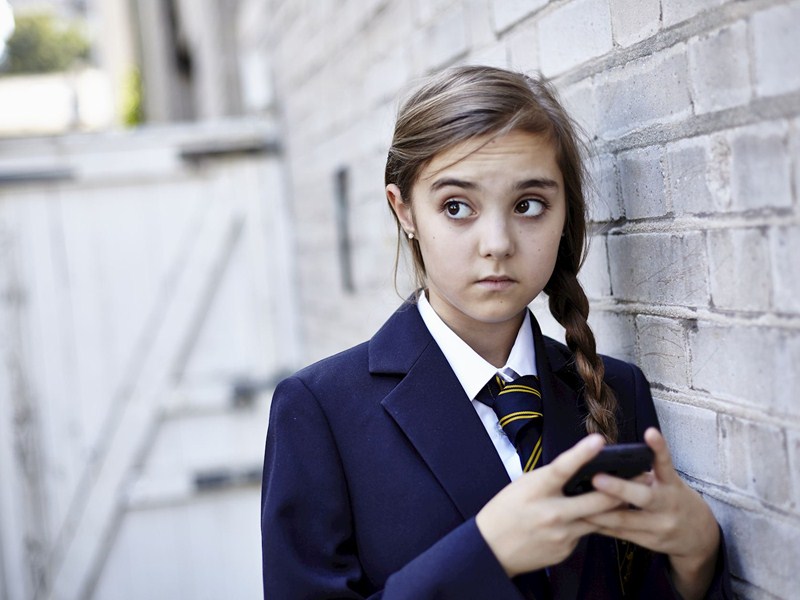Parents have been urged to be vigilant by Kent Police after a three-fold rise in child sexting cases.
Latest figures showed there were 59 reports of under-18s taking explicit photographs or videos in West Kent in 2017, which compares to 21 in 2016.
These figures relate just to cases the police is aware of and is likely to be the tip of the iceberg.
It is technically illegal for a young person to take, share, download or possess an explicit image, but the force has stressed they do not wish to criminalise children.
Last week Kent Police Superintendent Susie Harper said: ‘I would encourage parents and teachers not to be afraid to talk to children about their activities.
‘[It is important] to explain the value of privacy to prevent young people from becoming both the victims and perpetrators of crime.’
She added: ‘If a child’s mobile phone contract is in his or her parent’s name, then the parent can be liable for any indecent material saved or sent from it.’
In West Kent, which includes Tunbridge Wells and Tonbridge, there were 13 reports of child sexting in 2014 and 22 in 2015. So far there have been 13 in 2018.
The area’s 2017 total of 59 cases is markedly smaller than the 83 reported in North Kent and 78 in East Kent.
SI Harper continued: ‘We have seen an increase in the number of reports of sexting over the past five years.
‘This could be attributed to more young people having mobile phones and the rise in social media.
‘Many young people think sexting relates to just sending flirty texts.
‘They may be unaware that taking and sending naked images of themselves or reshaping an image they have received is risky behaviour and has the potential to expose them to harm.’
Child safeguarding charity NSPCC said sexting was the most viewed topic on their website last year with 221,840 page views.
A spokesman said: ‘Children who share a naked image of themselves should be taught why it’s a bad idea, supported and safeguarded.
‘We don’t want to see the unnecessary criminalising of children, or parents whose son or daughter has been sexting.
‘Once a child sends a picture of themselves they have no control over where it is shared or who sees it. That can leave a child feeling humiliated and even lead to them being bullied or blackmailed.’








